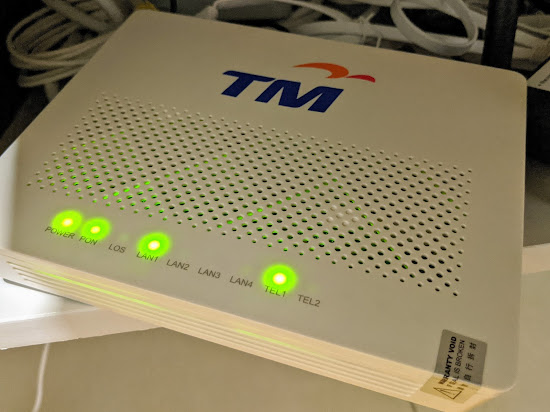An Explanation of TBBK (Kenaikan Pangkat Time-Based Berdasarkan Kecemerlangan)
 |
| The previous promotion system. |
This applies ONLY to applications of GD41 to DG44 & DG44 to DG48. Teachers whose Lantikan happened in Jan 2005 & later will go through TBBK. Those who were appointed in 2004 have probably received their KUP free of charge (without TBBK) by now. You lucky baskets. Those who were appointed before that were under the previous remuneration system of 10 years for a KUP promotion.
This is probably done in line with Shift 4 (Transform teaching into the profession of choice) of the Malaysian Education Blueprint (Pelan Pembangunan Pendidikan Malaysia: PPPM); from which I quote:
"They (teachers) will have access to exciting career development opportunities across several distinct pathways, with progression based on competency and performance, not tenure."
Interesting, right? This TBBK is supposed to only allow promotions based on merit.
Does it? Read on to find out.
~~~~~~~~~~
Requirements of Promotion as Specified in TBBK:
- Tempoh Perkhidmatan = 8 full years
- Pengistiharan Harta = Done
- Tindakan Tatatertib = None
- Pinjaman Tegar = None
- LNPT = Average of 80 for the past 3 years
- Borang Khas Cemerlangan (BKC) = Completed with supporting documents attached
- School-appointed Panel to review BKC = Pass with an average of 80
- Final Score = 60% LNPT + 40% BKC = At least 80
~~~~~~~~~~
BKCs & School-Appointed Panels Explained
Teachers who want to apply for Time-Based promotion will now have to fill a BKC & attach all relevant supporting documents. (Here are the BKCs.)
You must get at least 80 marks on average to qualify for TBBK. You can appeal if you don’t get enough.
Even after that, you will need to achieve at least 80 in your final score. I.e. 60% from LNPT (average from the past 3 years) + 40% from BKC review.
If you got 80 in your LNPT & 80 in your BKC review, you will get 80 for your TBBK.
~~~~~~~~~~
Implication #1: More Paperwork
 |
| Will we promote the best paper museum curators or the best classroom teachers? |
- Lesson Plans (Buku Rancangan Pengajaran)
- Activity Reports
- Student Performance
- Co-curricular Achievements
- Penglibatan Luar: Courses / Panels / Examiner / Invigilator
- Awards & Certificates
- Class Attendance & Activity Attendance Log (You cant say you trained for competitions without black & white proof now, can you?)
What if a teacher does not get promoted in the first application? He will have to keep producing 'attractive' documents year after year! Thus, distracting him from his core function, inducing frustration & increasing his administrative burden.
"Focus teachers on their core function of teaching from 2013. Teachers will enjoy a reduced administrative burden, so that they can focus the majority of their time on their core function of teaching."
I am a hard worker. I'm not the sharpest tool in the shed but I am a workhorse. I prefer to spend my time doing stuff that really makes a real difference. For all the things that I do, I hardly prepare any documentation. I'm too busy doing stuff that I don't have time to write about it officially in BM & then getting it signed by the KJ. TBBK puts me at a big disadvantage compared to those who do very little but are able to come up with 'attractive' documents with 'attractive' terms.
Implication #2: Slower Promotions
 |
| I hope I don't end up like this. |
Even after waiting 8 years, a promotion is not guaranteed. Even when the school panel gives you the green light, you might fall victim to a quota for your desired rank. In effect, promotions might take even longer & imagine year after year of applying & producing new paperwork.
Will teaching be the profession of choice? Is this an exciting career development opportunity? I believe excellent teachers might look elsewhere just like they are doing now. I.e. business, tuition, lecturing or international schools.
Implication #3: A 5 Year Honeymoon
 |
| Work hard 3 years, relax 5 years! Woo hoo!! |
Implication #4: Brown Noser Cemerlang
 |
| This is how organisations should work. |
The worst part is, at times performing teachers are not on good terms with their administrators. Thus, their promotions are deliberately sabotaged by the administrators who are also their evaluators.
~~~~~~~~~~
Conclusion: Screening Of Promotions Are Welcome But...
After reading this post, I believe some people will criticise me for insubordination, being unsupportive or spoilt. Actually, I do welcome screening of time-based promotions because I have seen plenty of undeserving teachers get promoted. In a system with accountable administrators, TBBK will work. It will ensure that only the most deserving teachers get promoted.
However, we, humans, will always find loopholes to manipulate even the most perfect systems. I have highlighted my concerns above. Believe me, they will come to be as an effect of the implementation of TBBK. The decision-makers in the ministry will have to consider whether they can live with the cons. Because even with TBBK, I'm not sure if undeserving teachers will actually work harder for the students. Well, at least, they will be forced to curate a paper museum or create the illusion of helping the students.
My dream is to be able to teach without worrying about all these promotions. Often times, those teaching the worst classes will not be able to perform well enough to merit a promotion. Whereas those in the better classes might not even have to lift a finger to collect accolades which lead to promotions. I want to be the former. Even when the system rewards the latter.




